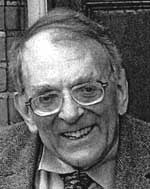 6th August: corrected the first quote: the first line should have read
6th August: corrected the first quote: the first line should have read
I had supposed that scholars were dedicated to the pursuit of truth, wherever that might lead, and that new ideas would always be welcome.
————————————–
Even some of the more conservative of New Testament scholars boast how they belong to a guild that prides itself on craving exploration for new insights, that is committed to testing the old ideas following wherever the truth may lead. Emeritus Professor Larry Hurtado about a year ago posted one such claim that as stridently endorsed by fellow faithful Christian soldiers/scholars James McGrath and Jim West:
The field of NT/Christian Origins, for example, is now more diverse, with more approaches, more perspectives, than ever; and probably most scholars dream of being able to correct or refute some established view, or successfully lodge some new view, or publish some hitherto unknown or insufficiently noted datum.
Innocent bystanders might raise an eyebrow at such claims emanating from a field that looks for all the world as if it is dominated by persons with a conflict of interest to such a pursuit. The vast majority are clearly committed in some fashion to the faith their scholarship seeks to underpin (or test).
I responded critically to the main theme of Larry’s disingenuously self-serving remarks because they sounded to me so contrary to what I have known researchers in “real” say about their fields. Do theologians really believe their own propaganda aimed at the masses of unwashed outsiders?
Fortunately not all do.
I have just had the pleasure of reading the memoirs of Michael Goulder, Five Stones and a Sling: Memoirs of a Biblical Scholar. Goulder is most noted for keeping the torch burning for the Austin Farrer thesis — the thesis that Luke knew and used Matthew and that there was no Q document behind either of these gospels — until Mark Goodacre came along to stand at his side and take up the cause.
There’s much in Goulder’s memoirs to write about but here let’s just see what this renowned scholar had to say about his own scholarly peers and their willingness to take up new ideas.
He explains the disappointment he experienced when scholars first dismissed his carefully reasoned arguments without any attempt to engage seriously with them: Continue reading “How Open To Radically Fresh Ideas Are New Testament Scholars Really?”
